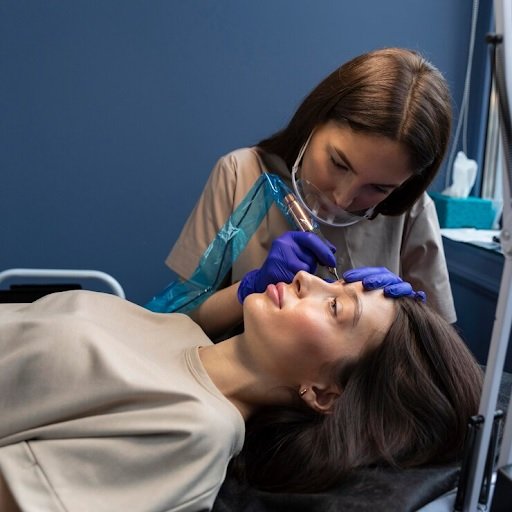Starting the journey to recovery is akin to embarking on a profound transformation. It involves a deep commitment to change and the resolve to overcome the grips of addiction. This path, though challenging, leads to a life of health, fulfillment, and renewed purpose. The process can be daunting, but with the right guidance and determination, a fresh chapter awaits. Below, we explore the critical steps and support needed for a successful recovery.
Embracing a New Beginning: The First Steps To Overcoming Addiction
The initial phase of recovery is often the most difficult; it’s the bold leap into the unknown. Admitting the need for change and seeking help is courageous and it’s the most critical step forward. During this stage, individuals often deal with a mix of emotions ranging from fear to hope. Detoxification and withdrawal, under medical supervision, are usually the starting points, cleansing the body and preparing the mind.
Embracing therapy is another foundational step. Engaging in one-on-one or group therapy sessions offers a safe environment to address the underlying causes of addiction. Facilities like HART Rehab specialize in providing structured and supportive programs tailored to individual needs, fostering the healing process. With professional guidance, recovering addicts begin to develop the psychological tools needed to navigate their new reality.
Developing Healthy Habits: Lifestyle Changes for Sustained Sobriety

Adopting new, healthy habits is fundamental in reinforcing the recovery process. Nutrition, exercise, and sleep are pillars that help heal and strengthen both the body and the mind. A balanced diet nourishes the body after the ravages of substance abuse, while regular physical activity releases endorphins that improve mood and reduce stress. Restorative sleep is equally crucial, allowing for mental and physical recuperation.
Personal care extends into honing new skills and hobbies. Engaging in creative or productive activities fills the time that was once occupied by substance use. It’s not only about diversion; it’s about the rediscovery of passions, talents, and joys that drugs or alcohol had once overshadowed.
Additionally, exploring educational opportunities can be empowering. Asking questions such as what is health informatics can help you get a better understanding of the scope of the industry. Further education becomes part of “re-engineering” oneself for a future where addiction no longer holds sway, building self-esteem and purpose in the process.
Building a Support System: The Role of Relationships in Recovery
A solid support system is invaluable during recovery. The encouragement and understanding from friends, family, and peers can make a substantial difference. Having individuals who offer a listening ear and a shoulder to lean on provides comfort and strength when facing the trials of addiction treatment. It’s essential to surround oneself with positive influences, which may mean setting boundaries with those who do not support the recovery journey.
Support groups and fellow recovering addicts can also play a critical role. They provide a shared understanding and mutual experiences that foster a sense of community and belonging. Groups such as Alcoholics Anonymous (AA) or Narcotics Anonymous (NA) offer a structured approach to dealing with the emotional and practical aspects of maintaining sobriety.
Navigating Challenges and Setbacks in the Path of Recovery
Recovery is rarely a straight line; it’s a journey replete with hurdles and potential setbacks. Relapses, while discouraging, can serve as powerful learning experiences. They highlight vulnerabilities and necessitate revisions in coping strategies. It’s important during these times to avoid self-criticism and instead harness the support system and resources available to get back on track.
Stressful life events such as job loss, relationship difficulties, or the loss of a loved one can test resilience. Building a toolkit of healthy responses to stress, such as engaging in physical activity, seeking out a therapist or support group, or practicing relaxation techniques, is essential. The ability to navigate life’s challenges without turning to substances signifies profound growth and strength.
Celebrating Milestones and Embracing Long-Term Growth in Sobriety

Recognizing and celebrating key milestones in recovery is vital. Each anniversary of sobriety, for example, is an immense victory that deserves acknowledgment. These moments serve as inspirational benchmarks, reflecting the hard work, dedication, and strength that have been poured into the recovery journey. They’re opportunities to reflect on growth and be grateful for the support that’s been received.
Establishing new traditions to commemorate these milestones can be enriching. Whether it’s a quiet reflection, a gathering with loved ones, or a community service project, these rituals highlight the positive changes and contributions that come with sobriety. They reinforce the new identity that is blossoming through recovery.
Overall, recovering from addiction is a testament to the strength of human will and the power of support. With determination, the right support network, and a commitment to ongoing personal growth, a life of sobriety becomes not just a possibility, but a reality. As individuals celebrate each milestone, embrace new challenges, and continuously evolve, they strengthen not only themselves but also the community around them in the unwavering journey of recovery.




